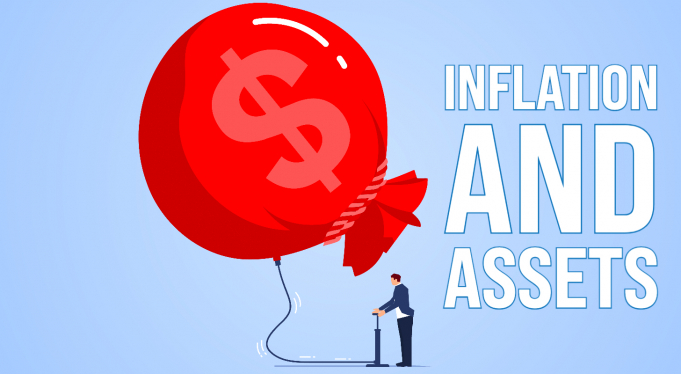Inflation has been the new buzzword since the start of the year. So much so, that the market expectations shifted, and valuations are seeing a new range. While some of it was expected, the magnitude and tempo were astounding. Initially, central banks in North America termed this inflation as ‘transitory’ and have since changed their stance. Considering the market mood, it is important to be aware of how assets can be impacted by inflation.
Starting with cash, which in a savings or GIC accounts, can be termed as short-term interest-bearing instruments. As short-term interest rates adjust with expected inflation, such securities can earn a floating real rate. Such-term interest-bearing instruments are considered zero-duration and inflation-protected assets, and therefore are attractive in a rising rate environment.
Moving on to bonds; rising inflation leads to capital losses as bond prices decline. If inflation remains within an expected range, short-term yields rise/fall more than longer-term yields. However, if inflation moves out of the expected range, longer-term yields rise/fall more sharply. The inflation jump recently seen was out of the expected range, but expectations have adjusted quickly.
Coming to our favorite asset class, equities; if inflation stays within the expected cyclical range, there is little effect on stocks as the market prices in expectations fairly quickly and companies can raise prices in-line with inflation to some degree. Unexpectedly high inflation might make central banks take action to slow down the economy by raising interest rates, which is what affects valuations of high-growth and highly leveraged companies. High inflation benefits those companies that can pass on inflation, which generally tend to be of consumer staples, financial and industrial sectors.
Lastly, for real estate assets, if inflation stays within an expected range, rental income and property values rise with inflation. On a positive note, higher than expected inflation leads to high demand for real estate, and vice versa when deflation occurs (opposite of inflation).
Studies and data have shown that not all inflation is bad, and economic mechanisms are in place to curb extremes. Business and economic cycles are a part of reality and investors should be aware of how different assets could be impacted.







Comments
Login to post a comment.